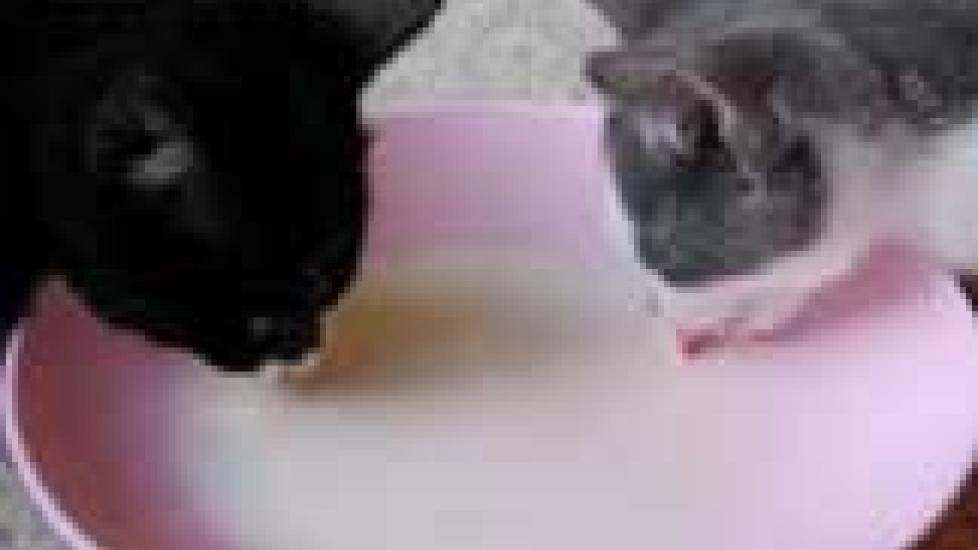Perceptions (and Misconceptions) About Feline Nutrition
One of the most common questions that I hear from cat owners is, "What type of food should I buy?" To the non-pet owners out there, the answer must seem obvious … "Cat food."
But the information that feline aficionados are really after is more complex. Owners want to make sure that their cats are getting optimal, balanced nutrition, and they don’t want to inadvertently feed their pets something that could compromise their health.
Learning about the nutritional needs of cats is not always easy because available information is often contradictory and confusing. I’ll bet you’ve seen a few of the following dangerous misconceptions yourself:
Cats can eat dog food and do just fine.
No, no, no! The nutritional needs of dogs and cats are quite different, and so are their foods. When cats eat primarily dog food, they can develop potentially life-threatening diseases. Dog foods are generally lower in protein than are cat foods, and do not contain all of the essential amino acids and fatty acids that a cat’s body needs to function normally.
That said; don’t panic if you find your cat stealing the occasional bite from the dog’s bowl. There is nothing in dog food that is toxic to cats, so as long as this behavior is the exception rather than the rule, you have nothing to worry about.
Cats need to have food available at all times.
A recent study by the Association for Pet Obesity Prevention estimates that 54 percent of cats in the United States are overweight or obese. In my opinion, the primary reason for this is that many cats have 24/7 access to food while living a sedentary lifestyle. It shouldn’t come as a surprise that a bored cat will turn to the food bowl for distraction; people do the same thing.
Obese cats are at a higher than average risk for diabetes mellitus, liver disease, osteoarthritis, heart failure, respiratory problems and constipation. Feed your adult cat two measured meals a day and offer only enough to maintain a slim body profile and healthy weight.
Milk is good for cats.
Of course, kittens drink milk from their mothers, but after weaning, milk is not a normal part of the feline diet. Some adult cats are not able to break down the lactose that is naturally present in milk, which can lead to diarrhea. Even if your cat is not lactose intolerant, milk is not a nutritionally balanced meal. As long as your cat can digest milk well, a small amount as a treat every now and then won’t do any harm, but don’t make it a regular addition to the diet.
Cats are carnivores, so they should eat just meat and fish.
While it is true that cats need to take in more protein than do dogs, a meat-only diet is not a healthy option for either species. Among other things, meat is deficient in calcium, which would put cats, especially those that are still growing, at risk for skeletal abnormalities. When cats eat a diet composed primarily of fish, they can develop a vitamin E deficiency, which can result in a painful condition called steatitis (i.e., inflammation of fat). Raw fish is especially dangerous because it contains thiaminase, an enzyme that breaks down thiamine, a form of vitamin B. Cats that are deficient in thiamine become weak, are unsteady when walking, and may sit with their head bent forward and develop seizures.
Don’t let confusing messages about nutrition put your cat’s health at risk. Check out the new nutrition center and MyBowl page on petMD.com to get more information about what constitutes a complete, balanced and wholesome diet for cats.

Dr. Jennifer Coates
Image: Ryan Wick / via Flickr
